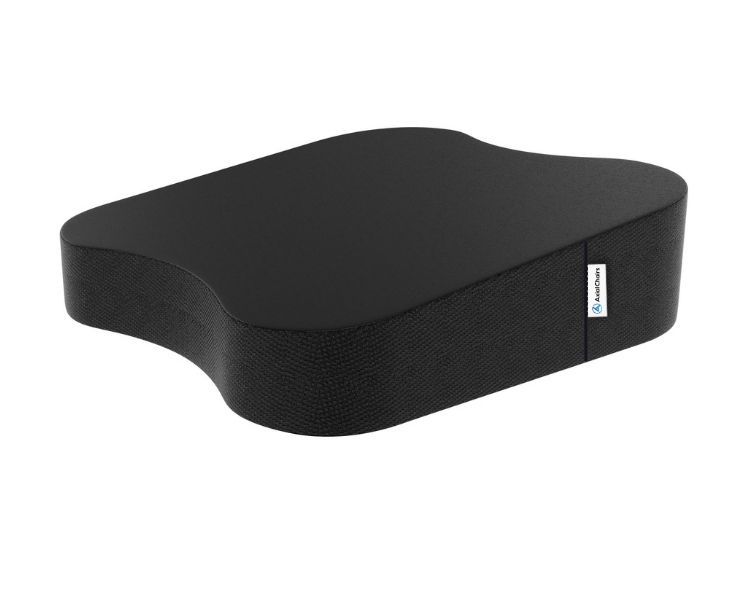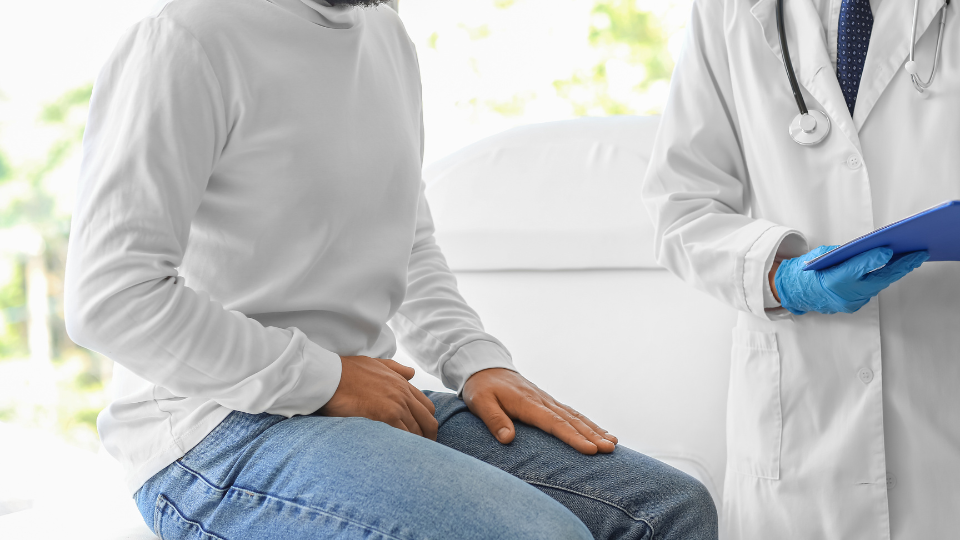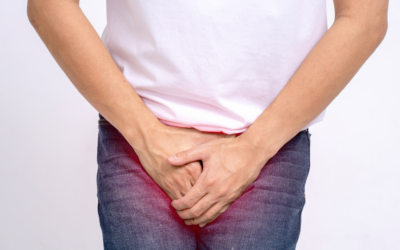It’s true that too much sitting has been linked to a host of health issues, including an increased risk for obesity, heart disease and diabetes. But could it also be detrimental to your prostate health? Recent research indicates there may indeed be a connection between excessive sitting and the development of prostate problems in men. In this blog post, we’ll take an in-depth look at what this means for those with prostate issues or who are worried about their risk for developing them in the future. We’ll cover potential risks associated with prolonged sitting, how sedentary behavior impacts our overall wellbeing and practical steps you can take to reduce its harmful effects on your body – including your prostate!
As a general rule, prolonged sitting can increase the risk of prostate problems, including cancer, by causing blood to pool in the veins around the gland and reducing circulation and oxygen flow. However, sitting alone is unlikely to be the sole cause.
Embark on a journey to find the best solutions for back pain relief with my assistance. My 30-year chiropractic career, coupled with ergonomic training, has provided me with a deep understanding of posture. My accomplishments encompass a published book, national TV appearances, and the invention of several tools aimed at improving sitting posture and comfort. Recently, I have successfully funded a set of ergonomic seat cushions through Kickstarter. Leverage my experience and knowledge to obtain advice that can help mitigate or even discomfort or pain.
Is Sitting Bad?
Sitting for long periods of time is not specifically bad for your prostate, but it may contribute to poor overall health and exacerbate certain prostate-related conditions. It is important to note that I am an AI language model and not a medical professional. However, here are some potential reasons why prolonged sitting could be detrimental to prostate health:
- Reduced blood flow: Sitting for extended periods can limit blood flow to the pelvic region, which may contribute to poor prostate health or exacerbate pre-existing conditions such as prostatitis or benign prostatic hyperplasia (BPH).
- Increased pressure: Sitting for a long time can put pressure on the pelvic area, including the prostate gland. This added pressure may contribute to discomfort or worsen existing prostate issues.
- Sedentary lifestyle: A sedentary lifestyle can contribute to obesity, cardiovascular disease, and other health issues that can indirectly impact prostate health. Maintaining a healthy weight and staying active can help support overall prostate health.
- Poor posture: Sitting with poor posture may put additional strain on the pelvic region and exacerbate prostate-related issues.
- Inactivity: Inactivity can lead to weakened muscles in the pelvic floor, which can be important for maintaining healthy prostate function and urinary control. Regular exercise, particularly activities that engage the pelvic floor muscles, can help support prostate health.
It is important to remember that these factors may not directly cause prostate problems, but they can contribute to overall health and wellness, which can indirectly impact prostate health. As always, consult with a healthcare professional for personalized advice and information.
All Day Comfort & Support
I’ve written a complete hands-on review about the Best Seat Cushion for Prostate Relief and here are some of the issues that I ran into!
How to Relieve Prostate Pressure: Combating Bad Habits for Men’s Health
Incorporating physical activity into your daily routine is essential for men’s health, especially when it comes to alleviating prostatic pressure. Unhealthy habits, such as prolonged sitting, are associated with an increased risk of prostate cancer. However, there is no relationship between long-term sitting and serum PSA levels. To avoid worsening your prostate health, engage in regular exercise and maintain a healthy lifestyle.
Best Way to Sit With Enlarged Prostate: Physical Activity and Posture Insights
If you’re experiencing discomfort due to an enlarged prostate, the way you sit can make a significant difference. Sitting with proper posture and avoiding excessive pressure on the prostate can help. Also, incorporating physical activity into your daily routine can counteract the negative effects of sitting or inactivity that can also irritate the scrotum and prostate gland. Consult your healthcare advisor for personalized advice on the best sitting positions and exercises for your prostate health.
How to Shrink Prostate – Mayo Clinic Naturally: Prostate Health and Men’s Wellness
According to Mayo Clinic experts, maintaining a healthy lifestyle is crucial for promoting prostate health and potentially shrinking an enlarged prostate. Eating a balanced diet, engaging in regular physical activity, and maintaining a healthy weight can all contribute to better prostate health. In some cases, natural remedies or supplements may be a very promising candidate for supporting prostate health. Always consult with a medical professional before starting any new treatments.
Prostate Sitting vs Standing: The Search for Optimal Comfort and Health
Both sitting and standing for longer periods can have an impact on the prostate, but maintaining a balance between the two is essential for men’s health. Prolonged sitting has been linked to an increased risk of prostate cancer, while standing for extended periods can cause discomfort and fatigue. To promote optimal prostate health, alternate between sitting and standing throughout the day and engage in regular physical activity.
Can You Feel Your Prostate When Sitting Down? Men’s Health and Prostate Awareness
Best Seat Cushion for Prostate HealthAxial Ergonomic Seat Cushion® | Seat Chair Wedge
Quick Guide: A 30-Second Summary

All Day Comfort & Support
Product Name
Axial Designs™ Seat Cushion
Price
$149
Warranty
1 Year
Type
Posture Wedge
Top Layer
100% Natural Latex (Molded)
Bottom Layer
High-Density Foam
Top Material
Isometric Grippy Vegan Leather
Bottom Material
Non-Slip Material
Side Material
3D Breathable Fabric
Typically, you won’t be able to feel your prostate when sitting down. However, men with prostate issues, such as an enlarged prostate or prostate cancer, may experience discomfort or pressure in the pelvic region when sitting. This discomfort could be an indication of an underlying issue that needs medical attention. It’s essential to consult with a healthcare professional, such as a urologist, if you’re experiencing any unusual symptoms related to your prostate.
Conclusion
With knowledge comes power, and it is important to have an understanding of the potential risks and rewards involved when it comes to sitting. The issue of whether or not sitting is bad for your prostate is complex, and research has yet to provide definitive answers. That being said, there are steps that men can take to help keep their prostate healthy whatever they choose to do, such as increasing physical activity, eating a well-balanced diet, reducing stress levels, quitting smoking, and speaking with a doctor about getting screened and taking preventive measures – like regular testing for prostate-specific antigen (PSA) – if appropriate. While the specific effects of sitting on the prostate remain uncertain, it’s crucial to take into account all relevant aspects of one’s lifestyle amid this debate in order to make educated decisions that can best benefit overall health.




